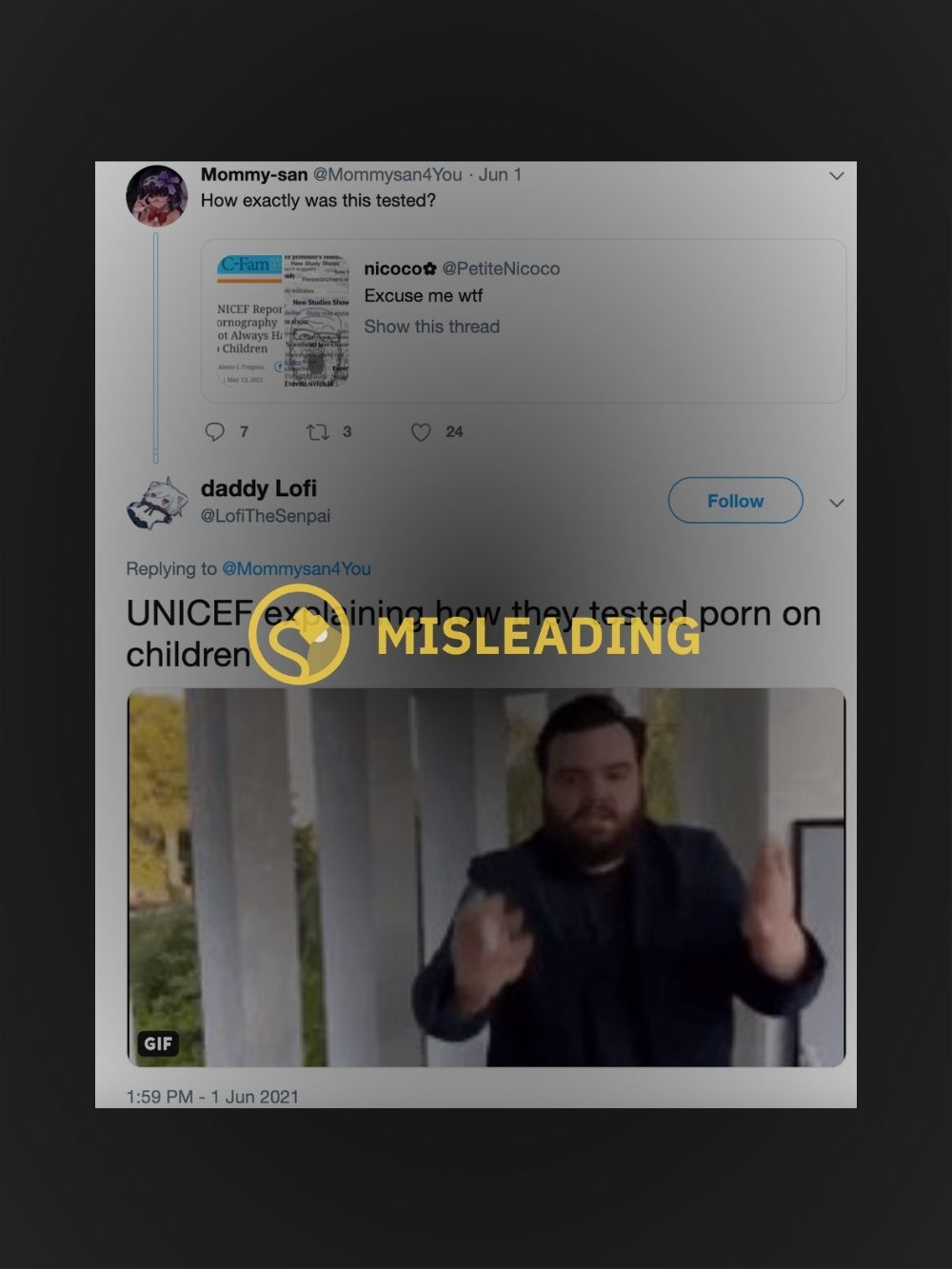On June 3, 2021, Nigerian website Pulse.ng published the headline, "UNICEF report says blocking children from watching pornography violates their human rights." Citing a May 13, 2021, story from right-leaning, U.S.-based, non-profit Center for Family and Human Rights (C-Fam), the Pulse story opened with a blurb in bold text that read:
The United Nations International Children's Emergency Fund has come under criticism after it has released a report which says exposure to pornography may not always be harmful to children because it prepares some of them for adulthood.
The story was picked up by by right-leaning Canadian site Post Millennial, which ran the headline, "New UN-backed study claims there's 'inconsistent evidence' that children are damaged by accessing porn."
None of those headlines was accurate.
Rather, the stories distorted portions of a April 2021 discussion paper published by UNICEF titled, "Digital Age Assurance Tools and Children’s Rights Online across the Globe." The paper didn't claim that blocking children from accessing porn violates their human rights, nor did it say that exposure to it may not always be harmful.
The paper instead noted that some countries render access to porn illegal for all age groups, while various countries have differing standards for what they define as porn. As a result, some educational materials dealing with sensitive topics like sexuality might be defined as "porn" by some governments.
In one section titled "Parental controls and supervision," the paper's authors state the following about parental-monitoring systems:
This approach is likely most suitable for younger children, because it may infringe on children’s rights to access information and to freedom of expression where their Internet access is censored at an older age. Practically speaking, it is also likely that older children will be able to circumvent parental controls.
This section makes no mention of pornography.
The paper also noted that, "the evidence is inconsistent, and there is currently no universal agreement on the nature and extent of the harm caused to children by viewing content classified as pornography." This statement followed a discussion about how many children are known to access pornography online, and how often, and a discussion about the degrees of harm inflicted, as well as various types of content they may be exposed to:
There is conflicting evidence regarding how many children worldwide are accessing pornography online, and how often. Some studies have found that boys are more likely to experience greater exposure to pornography at an earlier age, and they are more likely to be exposed to violent or abusive images such as rape, whereas girls are more likely to be subject to involuntary or problematic exposure.
In other words, UNICEF's report didn't state that viewing porn doesn't harm children. It pointed out that research into the extent of harm is complex and incomplete.
Some on social media falsely interpreted the C-Fam headline to mean that UNICEF tested out pornography viewing on children:
This was not the case. The UNICEF paper cited the 2020 European survey titled "EU Kids Online." In that survey, questioners asked children whether they had seen something sexual on or offline over the past year and how they had reacted to seeing it.
A UNICEF spokesperson told Snopes in an email that it took the discussion paper down because it was being misrepresented in a way that didn't reflect UNICEF's position.


